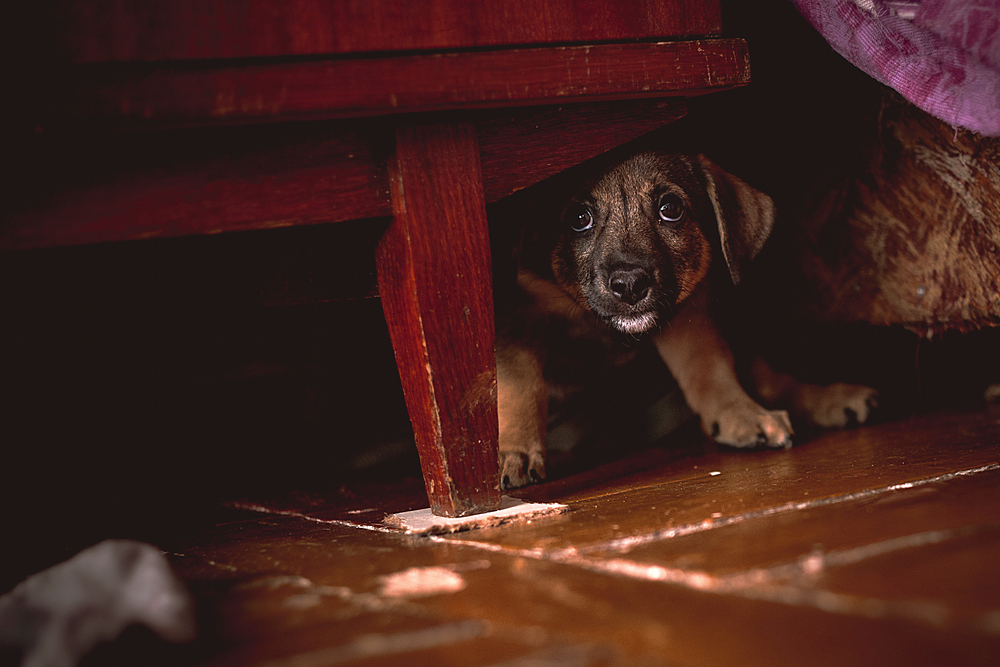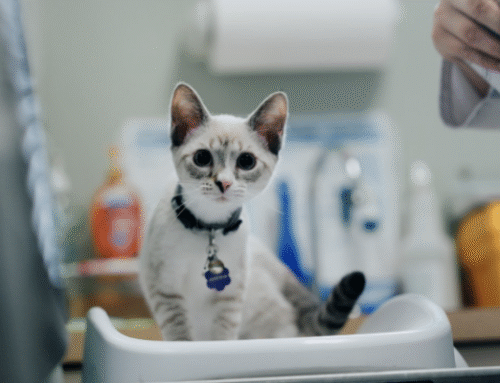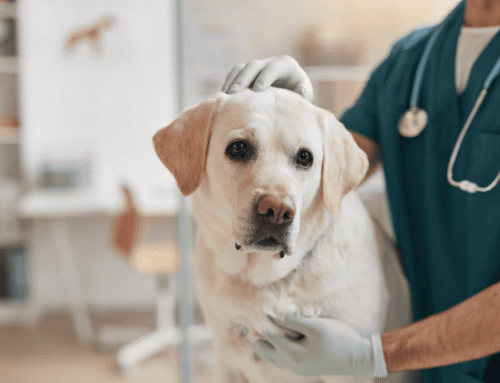Noise aversion, which is also known as noise anxiety or noise phobia, is a common problem among pets, but often goes undiagnosed, particularly in cats. Two-thirds of dogs are estimated to suffer from distress when they hear loud, startling, or repetitive sounds, and the problem is equally prominent in cats. Left untreated, noise aversion can progress and cause additional problems, such as taking more time to recover after a noise event, or developing separation or general anxiety.
Noise aversion can also damage the bond you share with your pet. Repeated destruction of your furniture, carpeting, door frames, and other items caused by your intensely anxious and fearful pet can be frustrating, despite knowing your pet is not being spiteful. If your pet is displaying noise aversion signs, no matter how subtle, you must act immediately to prevent their fear from escalating. Here are four ways to help your four-legged friend cope with noise aversion.
#1: Learn to identify noise-aversion signs in your pet
Without knowing what you’re looking for, mild noise aversion can be difficult to spot before its progression to a more serious problem—for you and your pet. During thunderstorms, fireworks shows, construction, heavy traffic, or other loud, unsettling sounds, monitor your pet for the following behaviors:
- Heavy panting
- Excessive drooling
- Pacing
- Whining, barking, meowing, or howling
- Inability to settle
- Clinging to owner
- Hiding
- Widened eyes with enlarged pupils
- Flattened ears
- Tucked tail
- Trembling
- Inappropriate elimination
- Excessive licking or grooming
- Destructive behavior
- Attempts to escape
When your pet first develops noise aversion, which can occur at any age, they may display heavy panting or pacing (in dogs), or more frequent hiding (in cats). As their condition worsens, they can become extremely dependent on your presence, so much so that they resort to chewing or scratching at kennels or doors to reach you.
#2: Remain calm when faced with loud noises
When the first fireworks explosion or thunderstorm lights up the sky, or you turn on the vacuum cleaner, your pet will likely turn to you for comfort. Stay calm and relaxed, or your furry pal will pick up on your demeanor and become more anxious. Speak softly and soothingly, avoid fast or jerky movements, and refrain from constant reassurance. Repeating, “It’s OK, it’s OK, it’s OK,” to your pet will not calm them, and will actually do the opposite and fan the flames of their fear.
#3: Design a safe, quiet space for your pet
When you can’t avoid your pet’s noise aversion triggers, such as a thunderstorm rolling in overhead, create a safe sanctuary for your pet that you soundproof as much as possible—an inner room, like a bathroom or walk-in closet, is ideal. Provide your pet with a cozy resting place, complete with a pheromone-sprayed blanket to snuggle in or hide under. Diffuse species-specific calming pheromones to promote a relaxing atmosphere, and play white noise or classical music to drown out scary sounds. To further distract your pet, offer a rewarding toy, such as a treat puzzle or long-lasting chew, and their comfort item, such as a favorite plush toy.
Make this space appealing by hanging out there with your pet and offering high-value treats, praise, and massages to form a positive association. With time, your pet will likely go running to their sanctuary at the first distant rumble of thunder, or the sight of the vacuum rolling out of the closet.
#4: Ask your Safe Harbor Animal Hospital veterinarian for help
Despite your most soothing efforts, your pet may still tremble, pant, pace, or hide during loud noises. While these behaviors are typically manageable, they are creating neural pathways to sound triggers that will create negative associations, and will eventually worsen with time.
If your pet cannot fully relax during noise events, our veterinarians can help. We can recommend behavior modification techniques that essentially rewire your pet’s brain, and pair these methods with anti-anxiety medication given as needed, or on a regular basis to foster calmness during scary sounds. We can also guide you on choosing calming supplements and products, like chewable “treats” or compression wraps, that can further soothe your pet.
Without treatment, your pet’s noise aversion will continue to worsen, and they may end up injuring themselves or damaging your home. Contact our Safe Harbor Animal Hospital team for an appointment if you suspect your pet has noise aversion, no matter how mild.









Leave A Comment